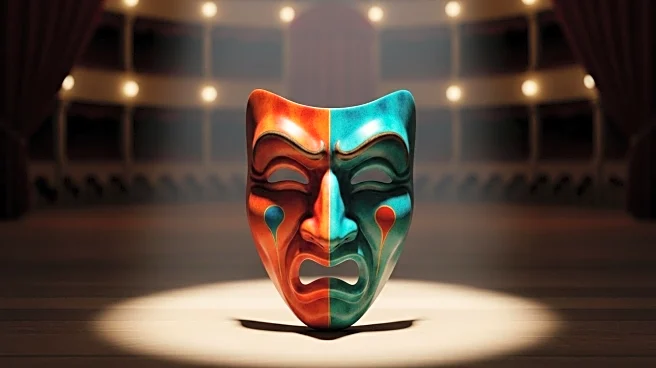What is the story about?
What's Happening?
Saudi Arabia is hosting its first-ever Riyadh Comedy Festival, featuring prominent comedians such as Dave Chappelle, Bill Burr, and Jimmy Carr. The event, which runs from September 26 to October 9, coincides with the anniversary of journalist Jamal Khashoggi's murder, a case linked to Saudi Crown Prince Mohammed bin Salman by a U.S. intelligence report. The festival has sparked controversy due to Saudi Arabia's human rights record, including the use of capital punishment for same-sex relationships. Despite this, the festival is part of the country's Vision 2023 plan to diversify its economy and improve its cultural image by investing in sectors like tourism and entertainment.
Why It's Important?
The Riyadh Comedy Festival is significant as it highlights Saudi Arabia's efforts to reshape its international image and diversify its economy beyond oil dependency. By hosting such events, the kingdom aims to position itself as a cultural and entertainment hub. However, the festival has drawn criticism from human rights groups who accuse the Saudi government of using it to 'whitewash' its human rights abuses. The participation of international comedians has also been scrutinized, with some artists declining invitations due to ethical concerns. This situation underscores the tension between economic interests and human rights advocacy.
What's Next?
As the festival continues, it remains to be seen how the international community and human rights organizations will respond to Saudi Arabia's cultural initiatives. The kingdom's efforts to attract global talent and events may face ongoing scrutiny, particularly if human rights issues remain unaddressed. The outcome of this festival could influence future cultural and economic engagements with Saudi Arabia, as well as the willingness of international artists to participate in government-backed events.
Beyond the Headlines
The festival's timing and the participation of high-profile comedians raise questions about the ethical responsibilities of artists in engaging with countries with controversial human rights records. The event also highlights the broader geopolitical dynamics at play, as Saudi Arabia seeks to balance its domestic policies with its aspirations for international cultural influence. This development may prompt discussions on the role of cultural diplomacy and the potential for entertainment to serve as a platform for dialogue and change.















